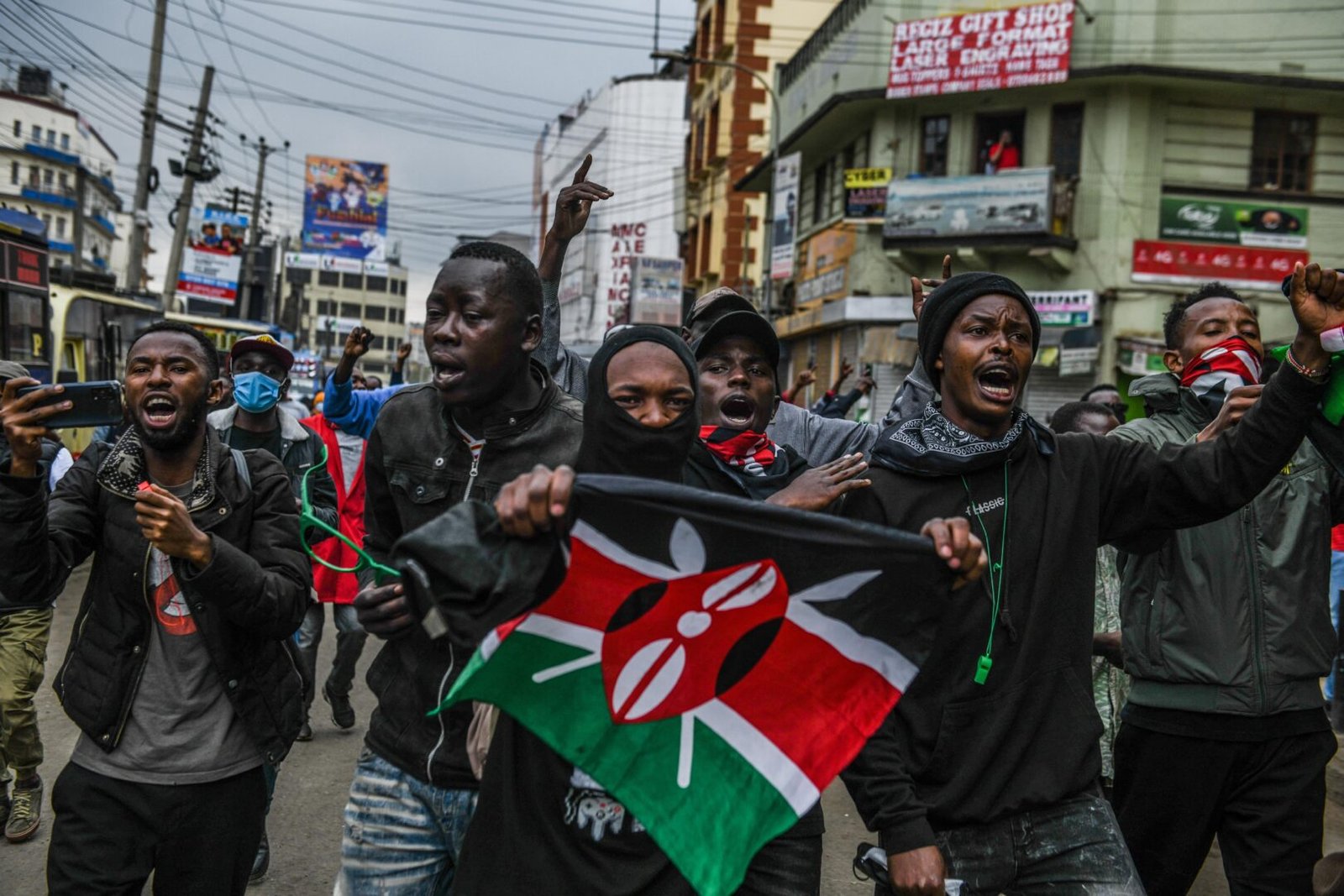NAIROBI, Kenya — As Kenya prepares to mark the historic Saba Saba Day on Monday, July 7, 2025, nationwide protests are expected to reignite a wave of public dissent reminiscent of the country’s past struggles for democracy.
Civil society groups, student unions, opposition leaders, and Gen Z activists have announced plans for peaceful demonstrations in major cities, citing concerns over economic hardships, police brutality, and perceived authoritarianism.
The anticipated protests follow weeks of growing political tension, with rights groups warning of a resurgence in heavy-handed state responses, including arrests, intimidation, and the use of lethal force.
The origins of Saba Saba
Saba Saba—Swahili for “seven seven”—commemorates July 7, 1990, when pro-democracy leaders and thousands of Kenyans defied a government ban to hold a rally at Nairobi’s Kamukunji Grounds.
The protest, led by figures such as Kenneth Matiba, Charles Rubia, and Jaramogi Oginga Odinga, demanded the end of the single-party state and ushered in the push for multi-party democracy.
Security forces responded violently, killing and injuring dozens, and arresting hundreds. The day became a pivotal moment in Kenya’s political history, often referred to as the start of the country’s “Second Liberation.”
A new generation, A familiar battle
Thirty-five years on, the spirit of Saba Saba remains alive—this time led by a younger, tech-savvy generation.
In 2024, Gen Z protesters stunned the political establishment with mass mobilizations against the controversial Finance Bill, using social media platforms to organize, communicate, and amplify their message.
Human rights organizations estimate that over 50 protesters were killed in the June 2024 unrest, with multiple reports of enforced disappearances and arbitrary arrests.
Despite President William Ruto eventually withdrawing the bill, public anger over governance, economic inequality, and police violence continues to simmer.
Calls for Monday marches
Organisers of the 2025 Saba Saba protests say they will honour those killed during last year’s demonstrations while pressing for structural reforms.
In a joint statement, youth coalitions and civic groups have called for:
- An independent audit into extrajudicial killings and disappearances
- Comprehensive police reforms and accountability
- Greater economic transparency and youth employment opportunities
- Protection of civil liberties and the right to protest
Demonstrations are expected to take place in Nairobi, Kisumu, Mombasa, Eldoret, and Nakuru, with symbolic gatherings at Kamukunji Grounds, Jeevanjee Gardens, and Freedom Corner.
Government response and security concerns
As Kenyans prepare for fresh Saba Saba Day protests scheduled for Monday, the government has voiced significant concerns regarding the potential economic fallout, cautioning that repeated demonstrations could severely erode investor confidence and steer the nation towards economic decline.
Trade Cabinet Secretary Lee Kinyanjui has emphasized that the widespread business disruptions and property damage witnessed during past protests have portrayed Kenya as an unstable environment for investors.
Kinyanjui underscored that while the Constitution safeguards the right to protest, the escalating violence observed in recent demonstrations actively undermines the very constitutional framework that guarantees this fundamental freedom.
“If we want to protect the right to picket, we must also respect other provisions in the same Constitution. Damage to property and loss of life are unacceptable. They negate the very Constitution that protects the right to protest,” the CS stated.
He further added that what often begins as peaceful protests are increasingly being hijacked by criminal elements, instilling fear among entrepreneurs and jeopardizing livelihoods.
“The exercise of this right must not be hijacked by criminal elements, but unfortunately, this has become a trend. Business owners live in fear of victimisation and the potential for violence,” he warned.
Kinyanjui lamented the cumulative cost of repeated business shutdowns, particularly within key commercial districts, asserting that such occurrences make the country appear unreliable and hostile to investment.
“The cost of shutting down businesses for days to accommodate protests makes Kenya seem unreliable and a dangerous place to invest in. I doubt any right-thinking Kenyan would advocate for such outcomes,” he remarked.
The Trade CS appealed for calm and introspection among citizens, urging restraint and a focus on national unity.
Also Read: Exposed: Inside the state-backed plot to sabotage Kenya’s Gen Z anniversary protests
“Let’s take a deep breath and reflect on the consequences of our actions, both current and future, and refrain from actions that are divisive and potentially dangerous. We must halt the race to the bottom. It pulls the whole nation down,” Kinyanjui concluded.
The upcoming Saba Saba Day demonstrations on Monday carry a dual significance: they commemorate the historic July 7, 1990 protests that were pivotal in ushering in multiparty democracy in Kenya under the late former President Daniel Arap Moi, even as the current government raises concerns about their potential economic repercussions.
The planned rallies, called by the National Alternative Alliance (NAA), were declared on July 2, citing widespread dissatisfaction with President William Ruto’s leadership. “We are going to organise protests to commemorate Saba Saba Day because Kenyans are angry about how Ruto is governing this country.
There is nothing that is working except corruption,” the Alliance stated. This renewed call to protest comes as Trade Cabinet Secretary Lee Kinyanjui cautioned against the economic damage caused by previous demonstrations, warning that repeated disruptions could erode investor confidence and destabilize the nation’s economy.


